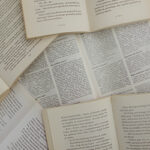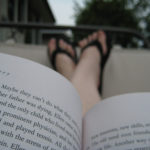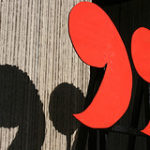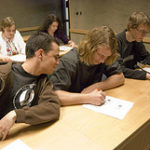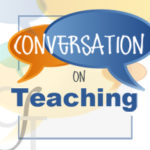‘Cheating’
Want to help your students avoid cheating? Consider this guide.
Sep. 22, 2021—The folks at EduMed have developed a guide to help students understand and avoid plagiarism and cheating. The title focuses on online students, but the breakdown of different forms of academic dishonesty and how to avoid them can be useful to all students. The descriptions of self-plagiarism, paraphrasing plagiarism, and mosaic plagiarism may be particularly...
Bruff Quoted in Chronicle article: Cheating is Only a Click Away
Sep. 9, 2011—A recent article in the the Chronicle of Higher Education included quotes from the CFT’s Acting Director Derek Bruff. The article, With Cheating Only a Click Away, Professors Reduce the Incentive, explores how common clickers – and the cheating associated with them – have become in university classrooms. Cheating with clickers, the article discusses, can occur...
Summer Reading: Research-Based Strategies to Promote Academic Integrity (Essays on Teaching Excellence)
Jul. 4, 2011—Research-Based Strategies to Promote Academic Integrity Michele DiPietro, Kennesaw State University The POD Network Teaching Excellence Essay Series, 2009-10 From the essay: “A cursory glance at the literature on cheating paints a bleak picture. In the past decades, the prevalence of cheating has hovered at discouragingly high level, with about 75% of students admitting to some...
Preventing Plagiarism – Some Resources
Mar. 3, 2011—by Derek Bruff, CFT Assistant Director Earlier this week the CFT and the College of Arts & Science’s Undergraduate Writing Program co-sponsored a conversation on teaching titled “Beyond the Quotation Marks: Preventing Plagiarism and Teaching about Academic Discourse.” Our three faculty panelists–Lynn Ramey (French), Andy Van Schaack (HOD), and Roger Moore (English)–shared some valuable perspectives...
Why Do Students Cheat?
Feb. 28, 2011—by Derek Bruff, CFT Assistant Director In preparing for this afternoon’s conversation on teaching, “Beyond the Quotation Marks: Preventing Plagiarism and Teaching about Academic Discourse,” I’ve run across a few resources that explore the question, “Why do student cheat?” Here are some possible answers to this question drawn from these resources… 1. It’s not cheating...
Upcoming: Beyond the Quotation Marks: Preventing Plagiarism and Teaching about Academic Discourse (Feb 28)
Feb. 22, 2011—Time & Date: 4:10—5:30 p.m., Monday, February 28 Facilitator: Derek Bruff, Assistant Director, CFT Audience: Faculty, Graduate and Professional Students, and Post-docs Panelists: Andy Van Schaack, Assistant Professor of the Practice of Human & Organizational Development Roger Moore, Senior Lecturer in English and Director of Undergraduate Writing (A&S) Lynn Ramey, Associate Professor of French Co-Sponsored...
Is Catching Students Who Cheat on Homework a Lost Cause?
Mar. 31, 2010—Jeffrey Young’s latest “College 2.0” article for the Chronicle of Higher Education is titled “High-Tech Cheating Abounds and Professors Bear Some Blame.” In the article, Young reports on recent research by David E. Pritchard, a physics professor at MIT, indicating that students frequently copy answers to online homework problems in science courses, sometimes by copying...
Episode 3 – An Interview with Michelle Sulikowski
Jan. 24, 2008—In this episode, we feature excerpts from an interview with Michelle Sulikowski, Senior Lecturer in Chemistry and Director of Education at the Vanderbilt Institute of Chemical Biology. In this interview, Michelle describes her use of SafeAssign, a software tool that can detect unoriginal content in student papers. Michelle used SafeAssign in a first-year writing course...
